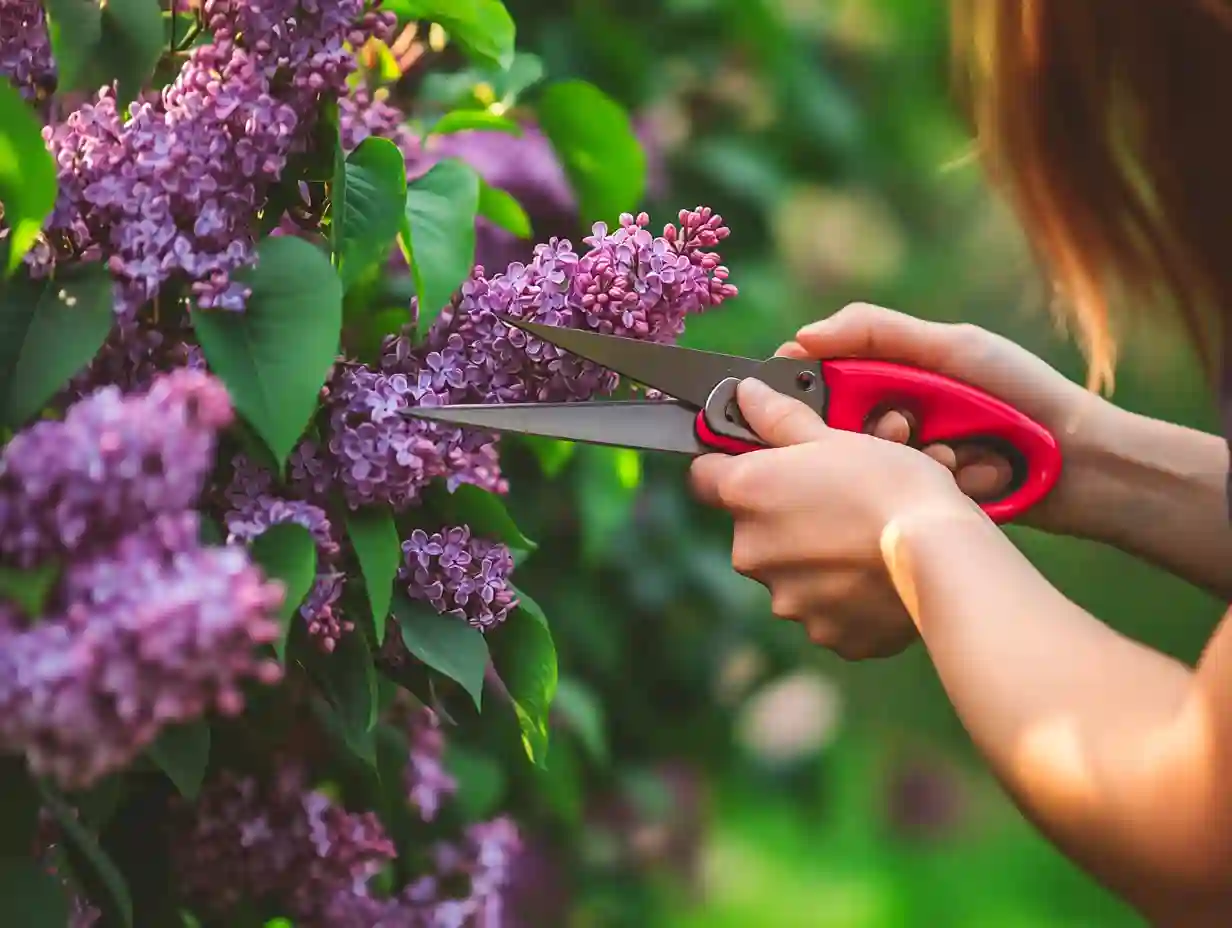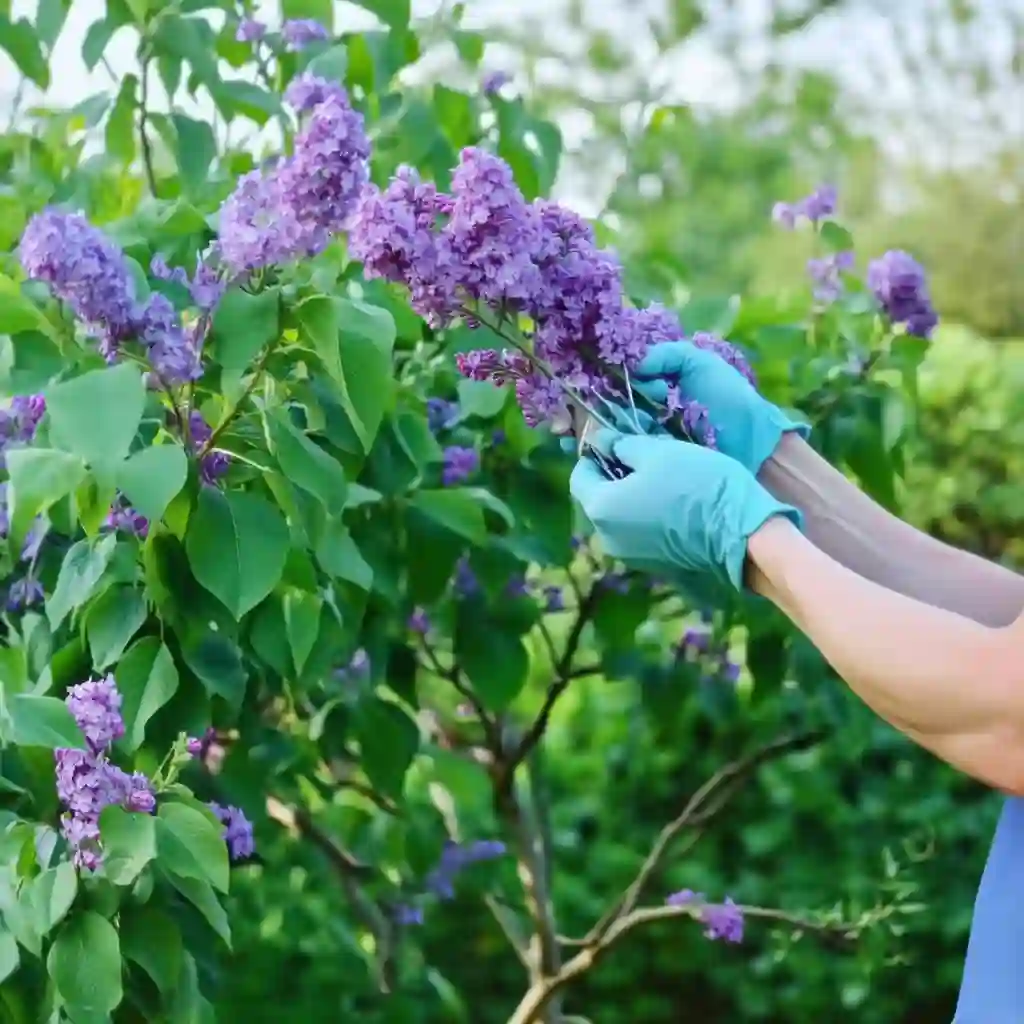If you’ve ever admired the fragrant, pastel-colored blooms of lilac bushes in spring, you know just how magical they can be. But what happens when your once-lush lilac becomes a tangled mess of stems and sparse flowers? Don’t worry — with the right pruning approach, you can bring your lilac back to life.
This beginner-friendly guide is perfect for gardeners who want to rejuvenate their lilacs, whether they’re tending to a newly planted shrub or tackling an overgrown heirloom bush. Pruning not only boosts bloom production but also improves plant health and keeps your lilac from turning into a wild, unruly giant.
You’ll learn exactly when to prune, which branches to cut, and how to shape your lilac for maximum beauty and fragrance. Plus, we’ll share essential tools, step-by-step techniques, and expert tips to avoid common mistakes.
Table of Contents
What You’ll Need to Prune Lilac Bushes
Before you begin, make sure you’ve got the right tools and gear. Clean, sharp equipment not only makes pruning easier but also protects your plant from disease.
🧰 Essential Tools:
- Bypass Pruning Shears – For cutting smaller stems and deadheading blooms.
- Loppers – Ideal for thicker branches (over ½ inch in diameter).
- Hand Saw – Helpful for cutting large, woody stems during rejuvenation pruning.
- Gloves – Protect your hands from scratches and debris.
- Safety Glasses – Optional but smart when working with mature or tall bushes.
- Isopropyl Alcohol/Wipes – For disinfecting tools between cuts or plants.
✅ Tip: Always clean your tools before and after use to prevent spreading diseases.
Step-by-Step Instructions for Pruning Lilac Bushes
Whether your lilac just needs a tidy-up or a major makeover, these steps will walk you through the right technique at the right time.
🌸 Regular Maintenance Pruning (Late Spring/Early Summer)
Step 1: Deadhead Faded Blooms
- After flowering, snip off spent blooms just above a pair of leaves or outward-facing buds.
- This helps the plant redirect energy into new growth instead of seed production.
Step 2: Remove Problem Branches
- Cut away any dead, diseased, weak, or crossing branches.
- This improves airflow and sun penetration, keeping the bush healthy.
Step 3: Light Shaping
- Trim back wayward shoots to maintain size and shape.
- Always cut just above an outward-facing bud to encourage growth in the desired direction.
🌿 Rejuvenation Pruning for Overgrown Bushes (Late Winter/Early Spring)
If your lilac has become overgrown or hasn’t been pruned in years, try this 3-year rejuvenation method:
Year 1:
- Remove one-third of the oldest, thickest stems at ground level.
- Cut out any dead or diseased wood.
Year 2:
- Remove another third of the oldest stems, focusing on those crowding the center.
Year 3:
- Finish by removing the last third of the oldest stems.
- By now, you’ll have a lilac full of fresh, healthy growth ready to bloom!
⚠️ Note: Rejuvenation pruning may reduce blooms in the short term, but the long-term payoff is well worth it.
🌿 Love gardening inspiration? Follow me on Pinterest for bold plant ideas, tips, and seasonal color!
More Posts

19+ Budget-Friendly Backyard Makeover Ideas
Backyard makeover ideas can turn even the most ordinary outdoor space into a warm, inviting retreat—without draining your wallet.
Read More →
21 Stunning & Simple DIY Clematis Trellis Designs
DIY clematis trellis designs are a beautiful way to blend creativity with function in your garden.
Read More →
12 Full Sun Perennials That Bloom All Summer
Explore a selection of hardy perennials that flourish and bloom beautifully in full sun throughout the summer.
Read More →
Houseplants for Living Room
Find the perfect houseplants to brighten and purify your living room while adding a touch of nature indoors.
Read More →
Backyard Play Area for Kids
Create a fun and safe backyard play area for kids with these inspiring design ideas and tips.
Read More →
Top Privacy Trees
Discover top tree varieties that provide natural privacy and enhance your outdoor space.
Read More →


